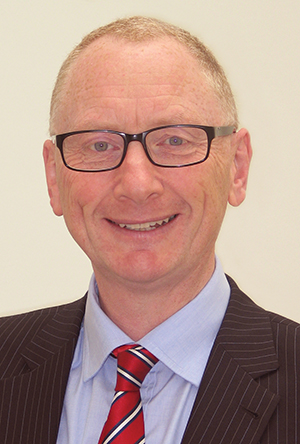Providing citizens with effective services
The Chief Executive of Aylesbury Vale district council,
Andrew Grant explains the importance of providing the services the citizen wants from local government.

Aylesbury Vale is located just north of London and is home to 182,000 people. The area is growing rapidly and estimates show that by 2030 its population will increase by a further 77,000 people. The rapid growth presents many challenges for Aylesbury Vale District Council’s Chief Executive Andrew Grant, both in delivering what the new residents expect from their council and in placating those residents concerned about the impact of this rapid growth on their community.
Grant compares the situation he is facing to the situation currently found in Northern Ireland as it comes to grips with the transition to the 11 new council areas. “Northern Ireland is undergoing a rapid internal change,” observes Grant. “A lot of organisations are coming together but at present there appears to be a lot of internal focus on who is getting what job and not enough on engaging the citizen and getting the structures right.” Grant outlines the need to embrace this change and the new responsibilities it provides noting that the most effective way to do that is to understand the citizen and involve them in future development plans. “This is a process of complex change management,” admits Grant. “It is the biggest in Northern Ireland since 1973 and although there is a lot to work through, speaking from experience, it can be liberating.”
Having experienced a shakeup of local government in England, Grant notes that the tax and subsidy model of local government can no longer prosper. “Under this model, businesses can strive to be as efficient as possible but this leads to a race to the bottom and eventually businesses end up doing less with less and a council’s income from taxes suffers as a result.”
A sustainable model
Grant and his team set about the transition to a sustainable business model by asking what solutions the council can provide to assist citizens and make their daily lives better. “We asked this question because we wanted to create value propositions for our citizens for which they would either reward us with money for services rendered or advocate us and consequently improve our reputation,” says Grant.
The development of this business model has resulted in Aylesbury Vale District Council reducing its budgetary expenditure by 40 per cent over the past five years. “Our business model is about citizens and customers and providing value propositions for which they would advocate us and pay us for receiving a service that is equal to anything provided by anyone else,” states Grant. “It is not just about the services you provide, it is about the things we could help provide the citizen as a trusted partner. All our rate payers are already our customers, it isn’t about selling them the planning service or a car parking space for 20p more than we did last year, it is actually understanding what is going on in their lives and providing efficient and effective services to solve these problems.”
Grant uses the example of Aylesbury Vale’s planning service to show how this thought process has improved services for the council’s customers. Three years ago, Aylesbury Vale’s planning service approved 90 per cent of applications, however this approval often took eight weeks to process and cost the customer £172 per application. Running the service cost the council £1.5 million per year. The planning application process has now been redesigned to great success with the council now making £450,000 per annum from the service. “We realised the planning application is not of any interest to the customer, they will have the builder and architect already in place at a much higher price than the cost of their planning application, the customer is just looking for permission, nothing else.”
The council have also used their planning powers and assets to improve the town’s economic regeneration. Grant acknowledges spending such a large sum was a cause for concern among councillors but with pre-lets agreed and the council receiving a six figure income per year from this redevelopment, it expects to be able to make a large return on this investment and much more than it would have if it had stuck to a tax and spend business model.
Customer convenience
As the first council in England to put all their digital infrastructure in the cloud, Aylesbury Vale District Council have no IT services on site, this reduces running costs but also allows the council to offer citizens personal and convenient services. “Digital is the only way to go,” says Grant. “Industries like insurance and travel have done everything they can to digitise their services allowing customers to work through some routines to get what they need and increase the value proposition. We have 10,000 accounts on our website and our commercial sale system lets us do everything we need to do digitally.”
Grant estimates that at least £5 million of the £30 million that has been saved in the past five years is because of this digitisation process however he also notes that staff have been fundamental to this transition. “It is not because of computers and where you put your servers,” he states. “It is about how you can place your people and your customers to find the best sweet spot in terms of serving them and increasing value. It is all about customers seeing you as a solution, not just as the council that they have to deal with.”
Once the council was sure the services it was offering were right for its customers the change programme began and the council’s staff were upskilled and trained to carry out the new procedures. However, Grant is in no doubt the most important work the council has undertaken with its staff concerns its approach to engagement. “We have done a lot of work on the behaviours and attitudes of our staff and getting them aligned to the business model. We have given staff the space to contribute to the business model and adopted an ‘all ideas are good ideas if they improve customer value’ approach. This has been beneficial in terms of encouraging our staff to embrace these changes and their positivity is a great benefit for our customers,” concludes Grant.





